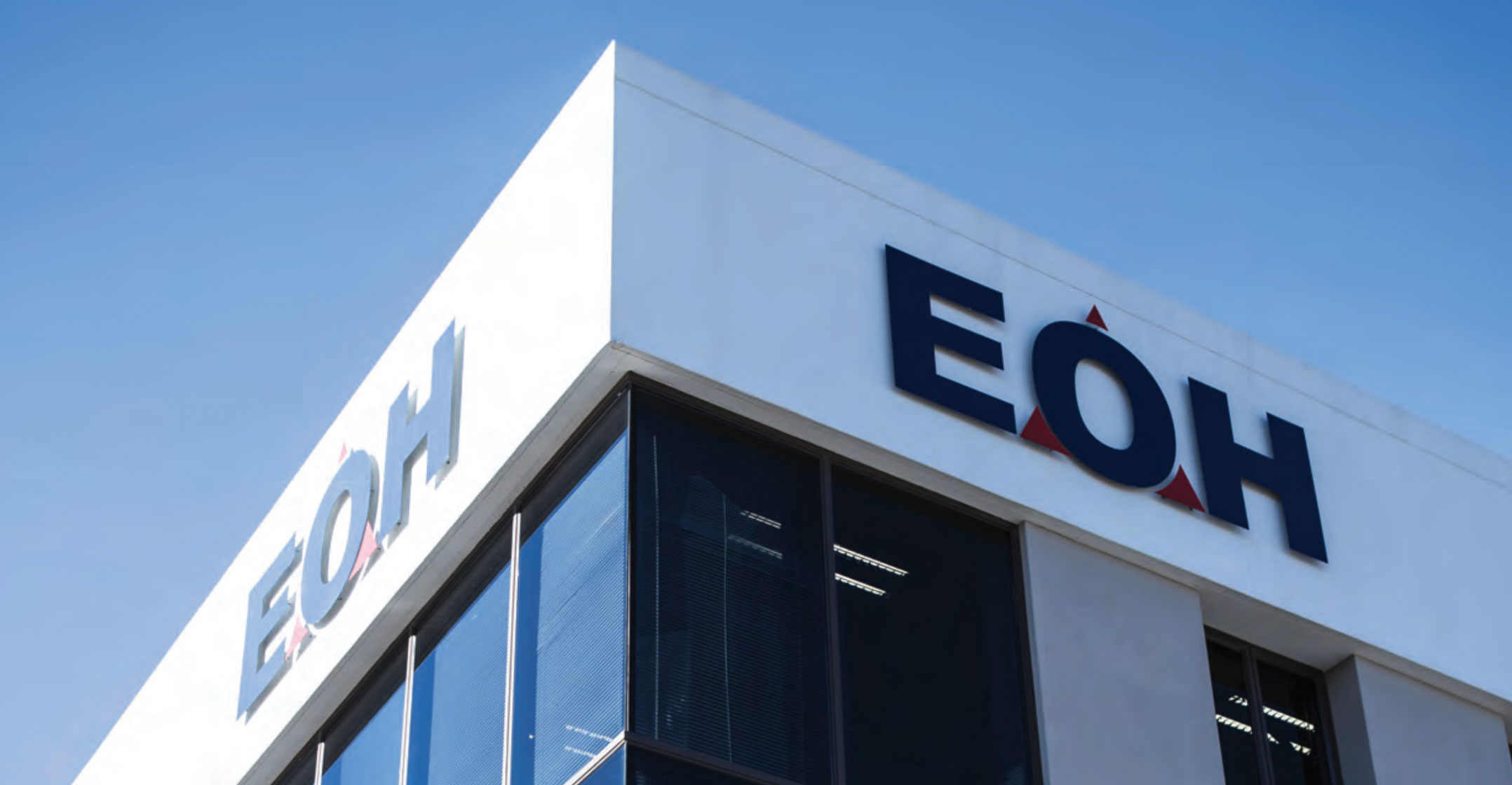
A news report on Wednesday suggested that EOH Holdings CEO Stephen van Coller is considering putting the JSE-listed IT services group up for sale. If he does that, who would be the potential buyers?
Bloomberg, citing “people familiar with the matter”, reported that a disposal of the business was one of the options under consideration by EOH management.
Van Coller and his team have met in recent months with institutional investors to explore the options to deal with the group’s remaining legacy debt issues. One of the options is a rights issue, though no decision has been made about the best course of action to take.
“We are exploring all opportunities to maximise value for shareholders,” Van Coller told Bloomberg. “Now that we are turning a profit, this has opened up many opportunities for shareholders.”
If a sale is being seriously considered, it’s worth asking: who would want to buy EOH, and who could afford it? There’s a surprising number of potential suitors, though none that is an obvious match.
EOH has a market value of about R1.2-billion (based on its share price on Thursday morning of R5.61 — more or less where it’s been trading in recent weeks). Let’s assume a buyer has to pay a generous premium to secure the support of EOH shareholders. That means an offer price of, say, about R1.5-billion (25-30% premium), possibly in cash, plus the appetite to take on EOH’s debt covenants.
That’s not a great deal of money for South Africa’s three biggest telecommunications operators: Vodacom, MTN and (to a lesser extent) Telkom. But would any of them be interested?
Potential suitors
I spoke to local equities analyst Irnest Kaplan, who has closely tracked the listed technology sector in South Africa for decades, to help me unpack the possibilities and what could happen to EOH. So, with his help, let’s deal first with potential suitors in the telecoms sector.
Vodacom and MTN are not big players in the traditional IT services space. They offer some solutions through Vodacom Business and MTN Business, but they remain predominantly telecoms operators whose biggest growth opportunities lie in areas like fintech. Where they do offer IT services, these tend to be fairly limited in scope, certainly in relation to the sort of services provided by a company like EOH.
Vodacom has ambitions to become what it calls a “techco” – or technology company – and EOH could help it diversify its offerings. But is EOH a natural fit? Probably not.
And for both MTN and Vodacom, would buying EOH be enough to move the dial? EOH reported R167-million in operating profit in the six months to 31 January 2022; by contrast, MTN South Africa generated Ebitda (a measure of operating profit) of R9.8-billion in the six months to June 2021) and Vodacom reported Ebitda of R15.9-billion for the six months to September 2021. So, EOH is tiny in their universes.
However, buying it would add as many as 5 200 employees to their payroll (IT services is a human capital-intensive business) and could bring reputational risk, too – there’s a chance there are still some state capture-era skeletons rattling around in EOH’s cupboards. A thorough due diligence would be necessary, and still no guarantee of avoiding problems down the line.
 For his part, Kaplan worries that EOH, while it has been focused on fixing its internal issues, may not have kept abreast of the very latest developments in the technology industry – for example, in cutting-edge cloud services. This could make it less appealing to Vodacom or MTN, which would want to drive their solution sets around connectivity and cloud offerings, not legacy application-focused services, where EOH is strong. So, an MTN or Vodacom acquisition is unlikely.
For his part, Kaplan worries that EOH, while it has been focused on fixing its internal issues, may not have kept abreast of the very latest developments in the technology industry – for example, in cutting-edge cloud services. This could make it less appealing to Vodacom or MTN, which would want to drive their solution sets around connectivity and cloud offerings, not legacy application-focused services, where EOH is strong. So, an MTN or Vodacom acquisition is unlikely.
But what about Telkom? The partially state-owned telecoms operator is a more likely suitor, Kaplan tells me, as it already has an IT services arm in the form of BCX (previously Business Connexion), a company it acquired in 2015 for R2.7-billion in cash.
The BCX acquisition hasn’t exactly shot the lights out for Telkom. If anything, BCX has been a drag on the group’s earnings in recent years, and it’s been forced into several rounds of layoffs to reduce costs. It’s not a picture of perfect financial health.
So, buying and integrating another large services company could be a big ask for Telkom’s management team, and a deal could be blocked by the competition authorities anyway. Yet, the fragmented nature of the IT services market, Kaplan says, could see a deal pass regulatory muster – a combined EOH and BCX would not be dominant.
Of the three big telecoms players, Telkom looks like the most likely candidate to buy EOH, if it’s put up for sale
Kaplan thinks a combined BCX and EOH could potentially create a more formidable and stronger player in the IT services market, and a deal wouldn’t be prohibitive for Telkom financially.
So, of the three big telecoms players, Telkom looks like the most likely candidate to buy EOH, if it’s put up for sale and if Telkom’s new CEO, Serame Taukobong has the risk appetite.
But there are other companies, outside the traditional telco sector, that could make a play for EOH.
One of these is Dimension Data, the IT services firm owned by Japanese ICT giant NTT. A source told me a while ago – last year, or was it the year before that? – that Dimension Data and EOH had held very preliminary discussions that didn’t lead anywhere. Could those talks progress?
Any deal to acquire EOH would require buy-in from the Japanese. South Africa is a small market for NTT. And NTT is already investing money in a new data centre facility near Midrand, placing a bet that its future lies in cloud and related services. It’s unclear what NTT’s appetite would be for an old-school systems integrator like EOH.
Different areas
Kaplan points out that Dimension Data has historically focused in different areas of IT to EOH and BCX. Its business has been skewed towards networking, security and Internet-related fields. Although it has some expertise in applications, this has not been its main focus. Would EOH fit into Dimension Data’s current and future focus areas, driven by cloud and data centre solutions? Probably not.
What about Altron? There could be a more natural fit there, especially as Altron pivots to become more of an IT services business. The problem is the group is in a state of flux, and has lost several members of its senior leadership team, including CEO Mteto Nyati, in the recent past. The group’s share price is underperforming and it may lack the appetite to add more debt to its balance sheet (something it’s been working in recent years to fix). Until Altron appoints a permanent replacement to Nyati, and refined the strategy for the next few years, it’s difficult to see it having the appetite to pursue EOH.
Reunert also seems like an unlikely suitor, though it’s not impossible. Reunert is building its own IT services business, +OneX, under the leadership of a former EOH top executive, Rob Godlonton. Could Godlonton engineer a takeover of his old firm? Reunert is a conservative company, and a deal of that magnitude seems highly unlikely. Much more likely is that +OneX continues to seek smaller, bolt-on acquisitions, as it has been doing in recent months.

Interestingly, Kaplan thinks Gijima could make a play for EOH if the opportunity arose. Controlled by Robert Gumede’s Guma Group, Gijima has been largely out of the headlines since it was delisted from the JSE – save for the acquisition in 2020 of T-Systems South Africa (for an undisclosed sum). It’s impossible to know whether Gijima/Guma has the resources to pull off a deal, but with the right deal-making and backers, anything is possible. “I wouldn’t rule it out,” says Kaplan, who has kept in regular contact with Gumede following Gijima’s delisting. “Gijima is doing incredibly well, especially in the public sector. They’re a wildcard [regarding EOH].”
Another possibility is that a private equity company swoops in: a local or offshore PE player could always gobble up EOH, take over its remaining legacy debt, delist it, spend a few years refocusing the business and making it lean and mean, and then refloat its shares on the JSE (or sell it).
While it’s fun to speculate about who might buy EOH, a very different outcome is, of course, possible – likely, even.
“What are the chances of EOH getting bought outright versus getting some capital from somewhere, with maybe some BEE woven into it, and continuing to operate? I think the acquisition route is probably the less likely of the two scenarios,” says Kaplan. – © 2022 NewsCentral Media




